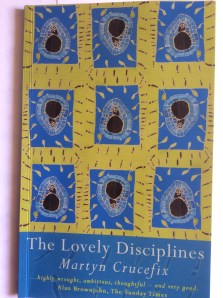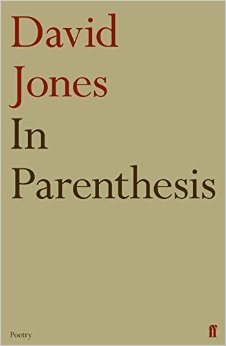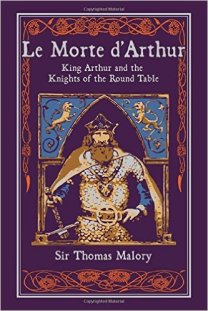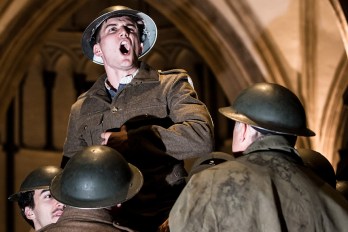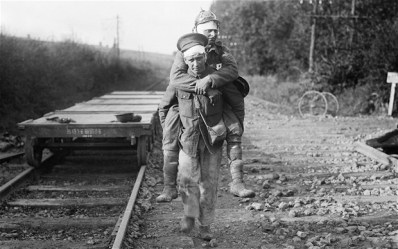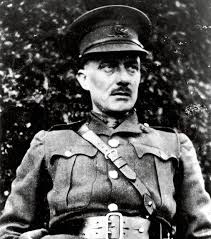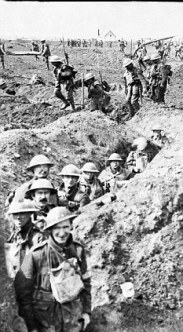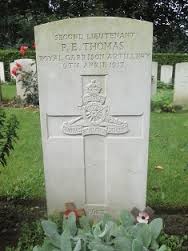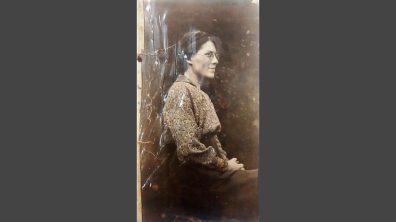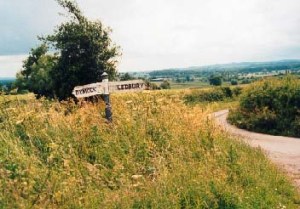Last weekend I was asked to talk briefly about Edward Thomas at an event at the Palmers Green Library in north London. This year is the centenary of his death and I looked at one of my favourite poems, ‘The Sun Used to Shine’. I have written in close detail about it in an earlier blog so I have excised most of my comments about the poem itself from this current post. I hoped to take the audience’s attention to the poem, to Thomas’ life in 1914/17 and then bring them to more contemporary poetry with a couple of my own poems which are thoroughly imbued with Thomas tropes – inspired by his work and life.
![p0222klt[1]](https://martyncrucefix.com/wp-content/uploads/2017/10/p0222klt1.jpg?w=428&h=241)
Edward Thomas died at the Battle of Arras on the 9th April 1917. One hundred years and 5 months ago. It has long been thought that he died from a nearby shell blast stopping his heart and his watch, on that Easter Monday. But a couple of years ago, the discovery of a letter from his commanding officer suggested he had been actually ‘shot clean through the chest’. It was perhaps a sanitised version of his death delivered to his wife, Helen, that gave rise to the attractively poetic myth of his ‘clean’ death.
But so much about Thomas has a similar mist of uncertainty about it. He shares with his great friend and poet, Robert Frost, a liking for the word ‘something’ – a thing that is unspecified or unknown, a description or amount being stated but not exactly. This is partly what makes him a modern writer (though his main subject material – the natural world – might make him seem otherwise).
![flowermoonPNG[1]](https://martyncrucefix.com/wp-content/uploads/2017/10/flowermoonpng1.png?w=326&h=217)
But he’s also modernist in that he can be emotionally reticent, guarded, suspicious. In a letter to his wife a few days before he was killed he wrote: “I know that you must say much because you feel much. But I, you see, must not feel anything. I am just, as it were, tunnelling underground and something (that word again!) sensible in my subconsciousness directs me not to think of the sun [. . .] If I could respond to you as you would like me to [. . . ] I should be unable to go on with this job”. You might think such guardedness was just a war-time effect. But a poem like ‘No one so much as you’ – written in 1916, surely to his wife – says: “My eyes scarce dare meet you”.
His difficulties with loving were certainly related to his bouts of depression. He suffered dark, suicidal periods, infamously taking a revolver with him into the woods intending not to reappear. In the poem ‘Beauty’ he writes:
What does it mean? Tired, angry, and ill at ease,
No man, woman, or child alive could please
Me now. And yet I almost dare to laugh
Because I sit and frame an epitaph –
‘Here lies all that no one loved of him
And that loved no one.’
The poem eventually finds some sense of relief in the natural world. Note here the uncertainty in both what it is in him that seeks happiness and what it is that seems lost to him:
This heart, some fraction of me, happily
Floats through the window even now to a tree
Down in the misting, dim-lit, quiet vale,
Not like a pewit that returns to wail
For something it has lost, but like a dove
That slants unswerving to its home and love.
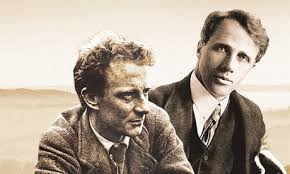
Because it’s one of his best, I’m going to look at Thomas’ poem ‘The Sun Used to Shine’ written in May 1916. There is no straining between subject and technique. Its moods shift continually from companionship, to thoughts of war, to an historical sense, to an almost cosmic sense of time. So it travels great distances without departing far from the English countryside that provided Thomas with its beginnings. Nor does it depart far from ordinary language – it has a surface accessibility. It’s held together by a human voice – quiet, questing, informed about nature as well as history, one willing to contemplate existential questions.
[. . .]
![alfred-tennyson[1]](https://martyncrucefix.com/wp-content/uploads/2017/10/alfred-tennyson1.jpg?w=388&h=254)
By the time the poem was being written, it was more than a year after the Frosts had sailed for New York. Thomas is mourning a lost era as much as a lost friend. Perhaps no surprise that he had Tennyson in mind as he wrote. In Memoriam is Tennyson’s tribute to his lost friend, Arthur Hugh Hallam. In section 89, Thomas found a model and images of friendship, the English landscape, ripe fruit, running water, long walks, long talks – a kind of lost Paradise:
The landscape winking thro’ the heat:
O sound to rout the brood of cares,
The sweep of scythe in morning dew,
The gust that round the garden flew,
And tumbled half the mellowing pears!
[. . .]
Nor less it pleased in livelier moods,
Beyond the bounding hill to stray,
And break the livelong summer day
With banquet in the distant woods;
Whereat we glanced from theme to theme,
Discuss’d the books to love or hate,
Or touch’d the changes of the state,
Or threaded some Socratic dream;
[. . .]
We talk’d: the stream beneath us ran,
The wine-flask lying couch’d in moss,
[. . .]
And brushing ankle-deep in flowers,
We heard behind the woodbine veil
The milk that bubbled in the pail,
And buzzings of the honied hours.
![9780905289380[1]](https://martyncrucefix.com/wp-content/uploads/2017/10/97809052893801.jpg?w=700)
Such similar quiet acknowledgements of landscape, of time present and past, of friendship are some of the themes which draw me to Thomas’ work. Another of his friends was Jesse Berridge. The depth of this friendship is revealed when Berridge writes – this in the Spring of 1947 (fully 30 years after Thomas’ death at Arras) – of dreaming of the poet:
In my dream he was coming down a road, in loose dark clothes, to meet me, with his long purposeful stride and his face alight with pleasure and gaiety. Well I knew that look on his face, and here and now I would give testimony that I did know very many hours in his company, and in by far the greater part of them he was happy, sometimes with an almost bewildering intensity.
Here (if I may) is a poem of my own, drawing on material from Berridge’s memoir of Thomas which I hope captures some of the pleasures the poet shared with Berridge and before that with Frost. The opening detail about the church at Kilve in Somerset, is referred to in Wordsworth’s poem ‘Anecdote for Fathers’ (1798) included in Lyrical Ballads, obviously a favourite with Thomas and Berridge:
These things I remember
after Jesse Berridge
That afternoon on the beach at Kilve
we had ascertained
there was no weather-cock on the church
and we were resting in peace
almost in silence when he turned
and told me to listen
to the little melodious twittering
of a tiny bird that swooped and dipped
between where we sat and the roiling ocean—
a meadow pipit he said
the moment was unforgettable then
as he so often made such things
calling attention to this or that aspect
of what I call his vision
as one morning he cut a walking-stick
from the woods then carved
until it had a character of its own
or the knife I’ve owned almost sixty years
its bone handle chafed
and worn by my touch
until the white has begun to show through
for him held a peculiar fascination
till obscurely I began to feel
it possessed of a soul
that nothing but his observation of it
had created and I remember my children
always delighted in his occasional visit
(from The Lovely Disciplines, Seren 2017)

Thomas and Berridge would often cycle the English countryside together and if you are interested in his extraordinary responses to the landscape I’d recommend In Pursuit of Spring, published in 1914. It was this book that Frost seized on in the summer of 1914 as evidence that Thomas ought to start writing poetry.
There are also personal reasons why I like this book so much – Thomas cycles from the outskirts of London, heading westwards, to the Quantocks. On his way he descends from Salisbury Plain into the Wiltshire where I grew up. Indeed he traces a particular ride along roads I know well. Here he is describing the almost visionary impact of the English countryside:
Motion was extraordinarily easy that afternoon, and I had no doubts that I did well to bicycle instead of walking. [. . .] At the same time I was a great deal nearer to being a disembodied spirit than I can often be. I was not at all tired, so far as I knew. No people or thoughts embarrassed me. I fed through the senses directly, but very temperately, through the eyes chiefly, and was happier than is explicable or seems reasonable. This pleasure of my disembodied spirit (so to call it) was an inhuman and diffused one, such as may be attained by whatever dregs of this our life survive after death. In fact, had I to describe the adventure of this remnant of a man, I should express it [. . .] with no need of help from Dante [. . .] Supposing I were persuaded to provide the afterworld with some of the usual furniture, I could borrow several visible things from that ride through Semington, Melksham, and Staverton.
Later, Thomas takes a detour to another place I know well, the village of Tellisford, its ruined water-mill and bridge by the River Frome. There he meets the Other Man, a figure who pops up in the book and who represents Thomas’ alter ego. I’d like to finish with another of my poems which I hope captures a good deal of the spirit of Edward Thomas in its love of English landscape, its sense of history, its longing for companionship, its loneliness and, in its conclusion, its sense, as ‘The Sun Used to Shine’ says, that “Everything / To faintness like those rumours fades”. The old man is a version of Thomas perhaps, or a version of the Other Man, or a version of myself – or all three at once. You might say one of my projects is to convince you that clarity is a chimera.
Rebuilding Tellisford weir
turn aside to see Tellisford – Edward Thomas
He refuses shade in midday heat
the old man walking
in his honey-brimmed hat
along the drained weir-shelf
that looks today like stacked loaves
its pallid smooth ranks
of Victorian stones
mapping precisely the Domesday line
where he patrols to and fro
proudly surveying the place he owns
this stretch of England
his plan to restore the workings
of the old watermill
to feed the Grid—and it is for this
he has ordered tons of sludge
to be dredged above the drop
and dozens of loosened stones
to be replaced to give
the mill-race its full head
and today he walks the slippery length
of the dammed weir-shelf
hallooing picnickers
who pull corks from fizzy wines
he cries what marvellous weather
then falls to conversation with a couple
who are celebrating sixty years
in their self-built house
with their three good boys
raised and schooled to distant homes
though today they recline
on trashy garden chairs
on this riverbank as if to watch
the old man in an antique yellow hat
who walks noting progress
on the weir and how could they know
he’s something on his mind
for the next hundred years
how could they know more and more
these days he struggles to endure
the roaring of the fish-shoot
with its silted water
and these stilted conversations
with such ordinary people
their Diet Coke and egg mayonnaise
their crisps for the grandchildren
their Sunday newspapers
let blow and tumble across the meadow
reminding him of himself
how his mind often strays
up the ditch-line to the old drovers’ road
where for fifty years
their cars have pinked and purred
especially at night as they mount
slowly the gravel verge—
O so many love-cars for so many years
drawn to his father’s land
each in pursuit of what the river gives
of moonlight and chance
of the ticking of an engine
as it cools of blonde hair spilling
across dark seats in disarray
he knows the windows rolled to the dusk
the sickly smell of water
the murmur within and talk
when it’s over though he knows well
it is never really over—
and it’s because of this
he will not turn them away
although they holler and soil and litter
still he’d grant them every wish
it’s for this his feet edge now across
the weir-shelf this afternoon
for this he takes his uneasy stand
hands thrust in his pockets
their cars pulling in to the dark hiss
of white gravel everywhere loosening
(from The Lovely Disciplines, Seren 2017)
